CKS Challenge 1
CKS Challenge 1 is a “set of complex challenges that will assist you in mastering Kubernetes Security concepts and getting ready for the coveted Certified Kubernetes Security Specialist Certification”. This particular challenge required the completion of several steps, which are outlined below. The overall requirements for this challenge are as follows.
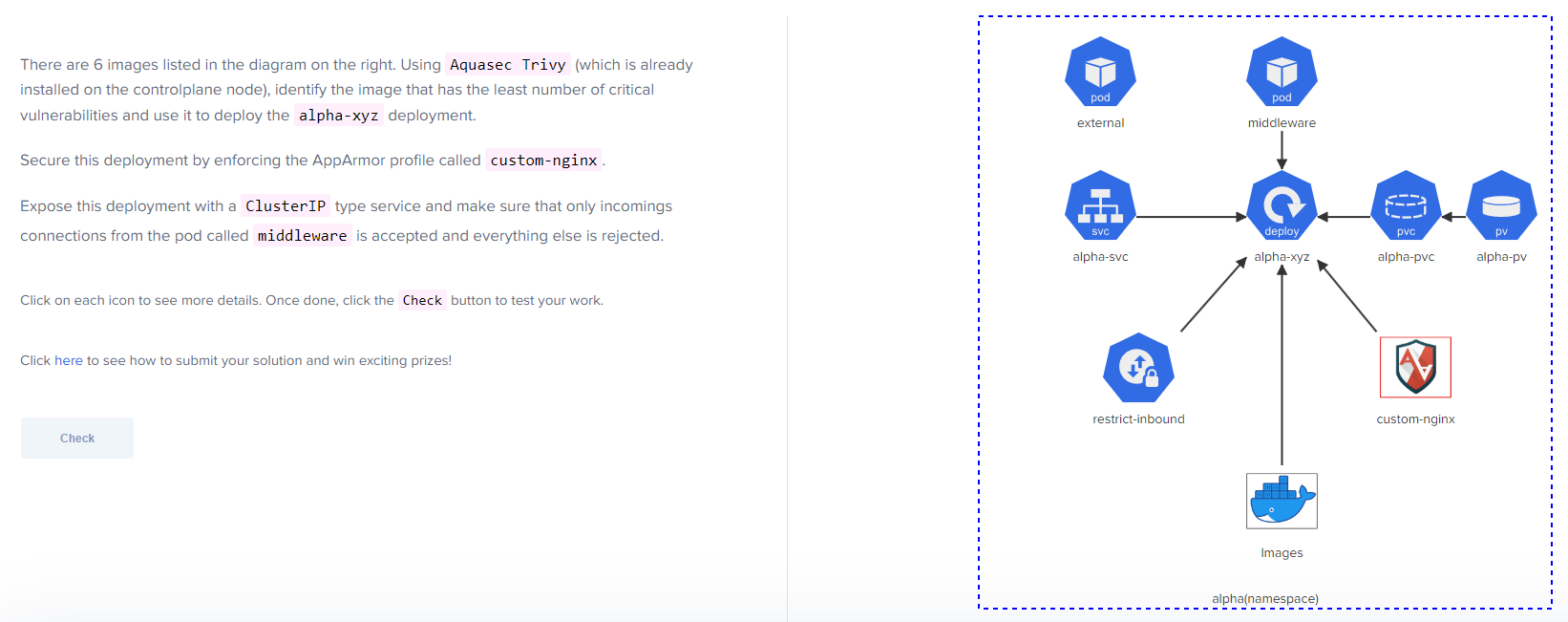
First, I utilized crictl image to list the images present in this Kubernetes environment. Since we know we’re using Nginx based on the container name in the provided deployment file, we know we can narrow the results below to run Trivy on to the Nginx images.
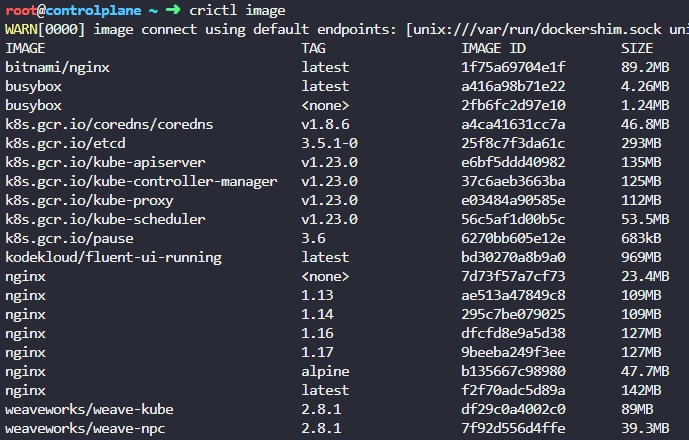
Next, to run Trivy and parse the data for viewing the total number of critical vulnerabiltiies, run commands similar to the one below:
trivy -s CRITICAL image <image name>|grep CRITICAL:
Doing this against all of the nginx images reveals that the nginx:alpine image is the one with the least amount of critical vulnerabilities (0).
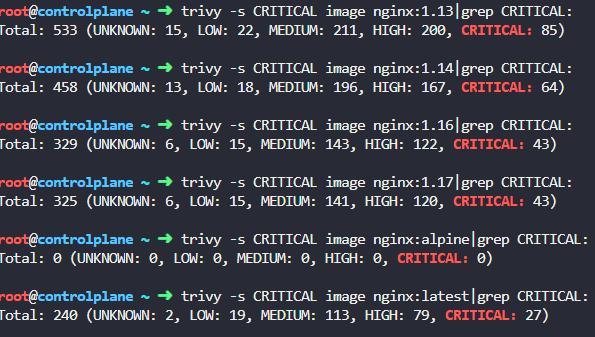
With this information, we can start editing the provided alpha-xyz.yaml deployment file and we can update the container image name to nginx:alpine as shown below:
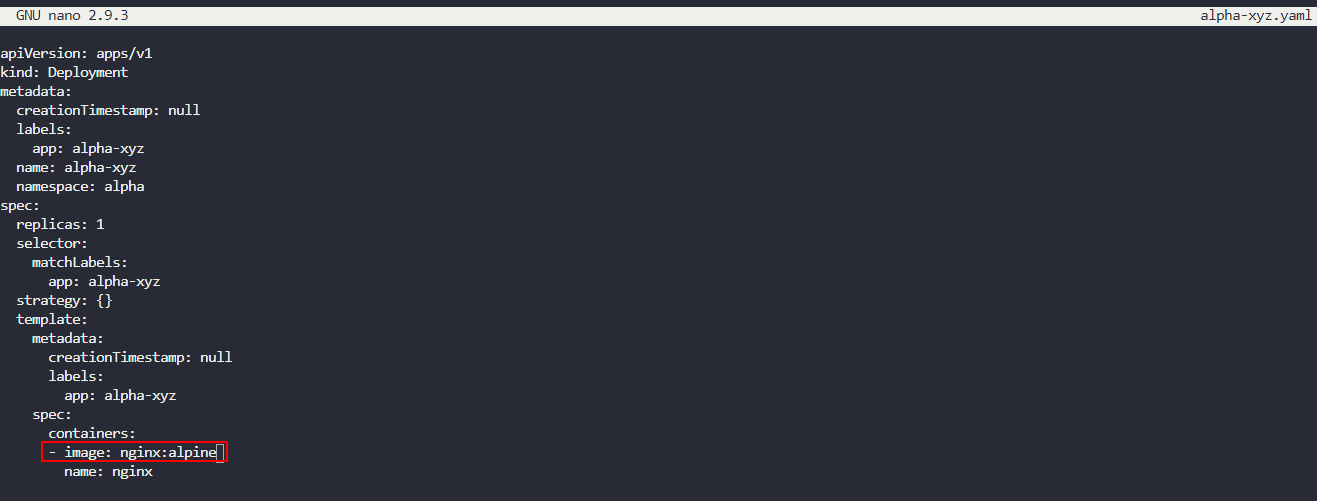
Next, we need to implement the provided apparmor custom profile named usr.sbin.nginx. First, we need to copy this into the /etc/apparmor.d folder, and then utilize apparmor_parser to load this profile:

Next, we will need to adjust the deployment file by adding in an annotation under the metadata section that is underneath the container template. Apparmor is enforced at the container level, so it will not work if it is listed under the general metadata area for the entire deployment. This should look like the following:
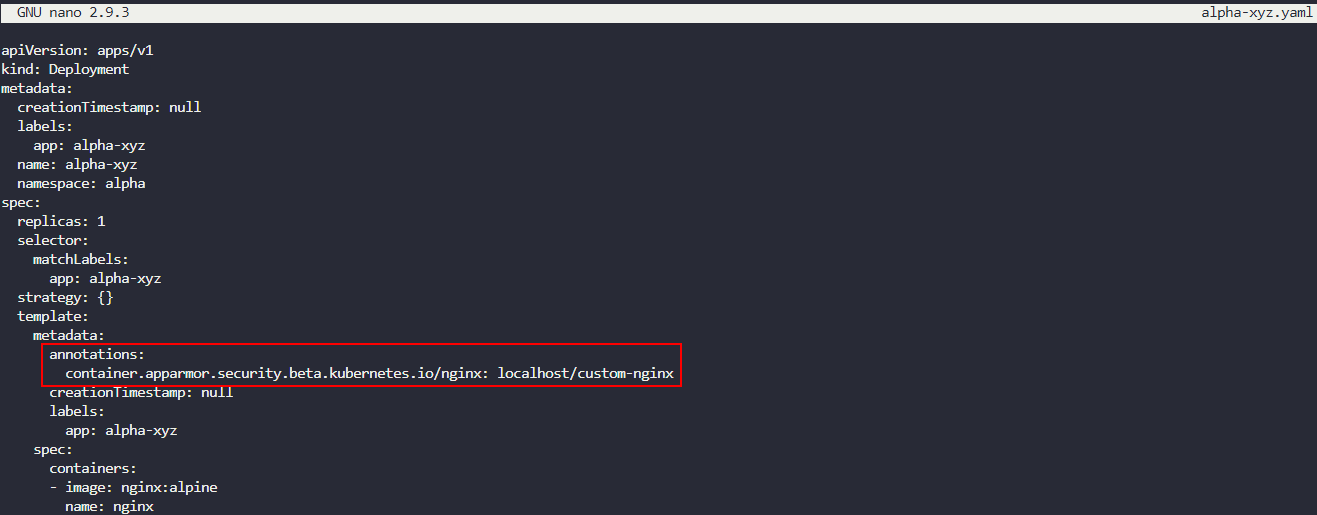
While clicking on the individual components, you will notice that there is a PersistentVolume and a PersistentVolumeClaim. Upon review of these, the PersistentVolume is setup as RWX, which stands for ReadWriteMany. Reviewing the configuration of the PersistentVolumeClaim shows that is is configured as ReadWriteOnce, which would make these incompatible with each other. These are also looking for a Storage Class named local-storage, which currently does not exist.

First, let’s create the Storage Class which should be configured as shown below:
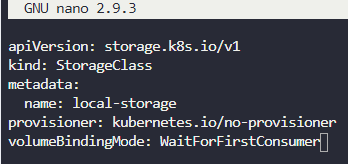
In this case, I saved this as storageclass.yaml and then I loaded it into kubernetes by running
kubectl apply -f storageclass.yaml (kubectl is using an alias of ‘k’ in the screenshot below):

Next, I recreated the Persistent Volume Claim. First, I copied the existing configuration to a YAML file with:
k get pvc -A -o yaml > pvc.yaml
Next, I modified the output to adjust the Access Mode and clean up some of the other information that was not required. The final Persistent Volume Claim YAML file is shown below:
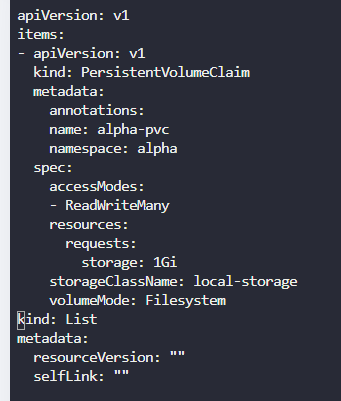
I then deleted the existing improperly configured Persistent Volume Claim and recreated it with:
kubectl delete pvc -n alpha alpha-pvc
kubectl apply -f pvc.yaml

Next, we need to ensure that the PVC is mounted on the pod in the deployment. This is done by updating the deployment configuration file to add in a Volume (which uses the Persisttent Volume Claim we just reconfigured) and Volume Mount as shown below:
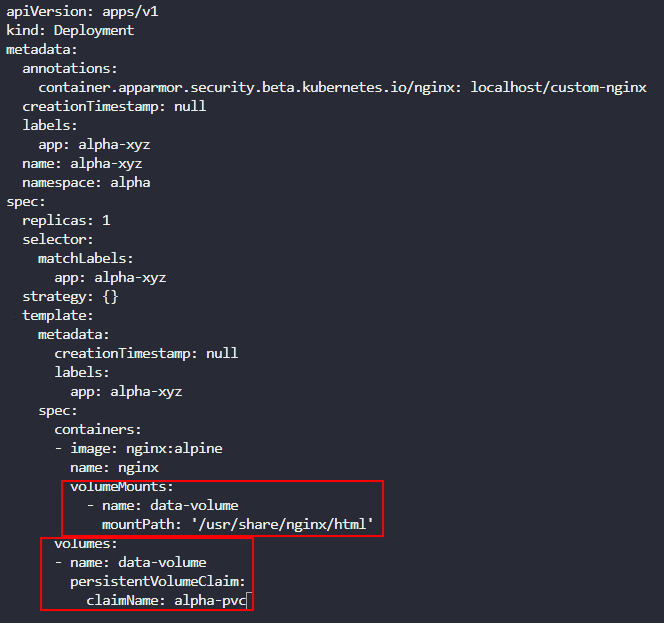
Once updated, we can now create this deployment by running:
kubectl apply -f alpha-xyz.yaml

Next, we need to create a Network Policy to limit what can access resources in the alpha namespace. This is done by creating an Ingress Network Policy that uses podSelector labels to only allow the “middleware” pod to communicate with other resources in the alpha namespace. The final configuration of the network policy is shown below:

Next, we will need to apply this policy like we have done with previous YAML files, which is done with:
kubectl apply -f networkpolicy.yaml
The final task to complete this challenge is to create a service named alpha-svc and expose it as a ClusterIP service over port 80 with a target port of 80 as well. This can be done by running the following:
k expose deployment/alpha-xyz --namespace alpha --port=80 --target-port=80 --protocol=TCP --name=alpha-svc --type=ClusterIP

This will expose the deployment as requested using a ClusterIP over port 80. At this point, you should be able to run a final check, which should return the challenge as completed!
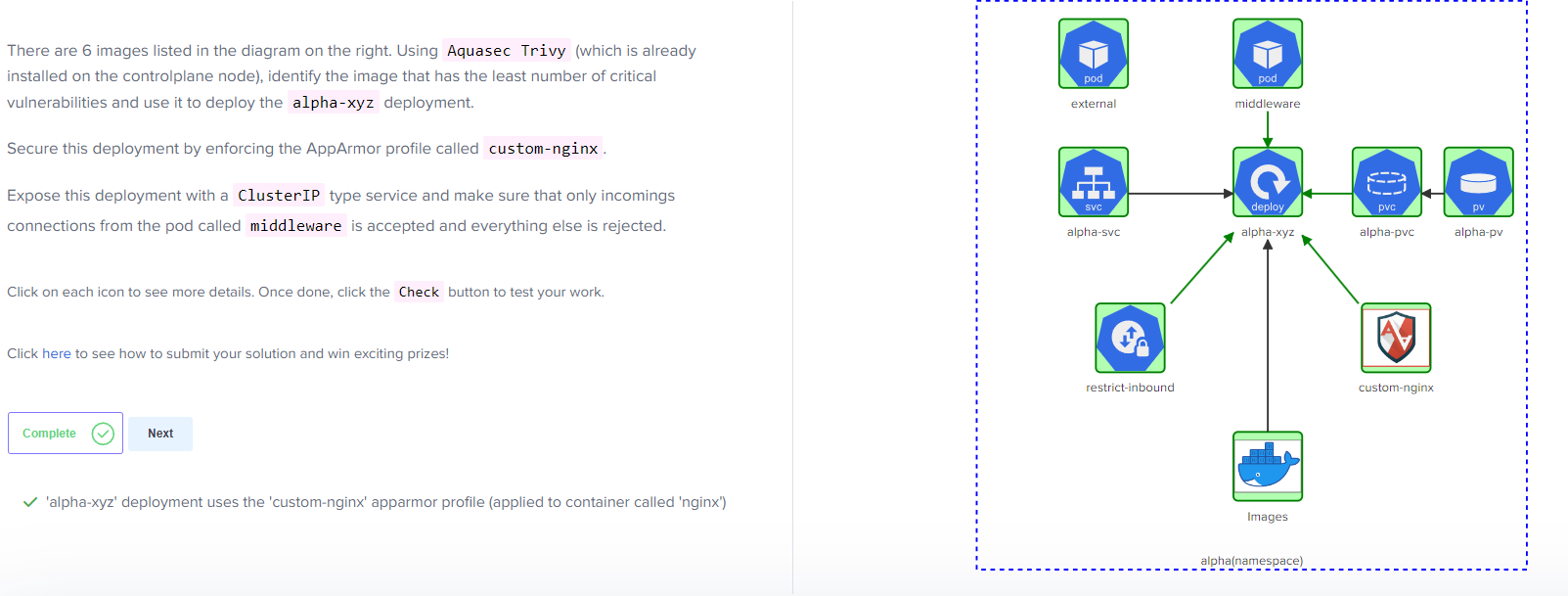
Below are the final configurations of the YAML files utilized during this challenge:
storageclass.yaml
apiVersion: storage.k8s.io/v1
kind: StorageClass
metadata:
name: local-storage
provisioner: kubernetes.io/no-provisioner
volumeBindingMode: WaitForFirstConsumer
pvc.yaml
apiVersion: v1
items:
- apiVersion: v1
kind: PersistentVolumeClaim
metadata:
name: alpha-pvc
namespace: alpha
spec:
accessModes:
- ReadWriteMany
resources:
requests:
storage: 1Gi
storageClassName: local-storage
volumeMode: Filesystem
kind: List
metadata:
resourceVersion: ""
selfLink: ""
alpha-xyz.yaml
apiVersion: apps/v1
kind: Deployment
metadata:
creationTimestamp: null
labels:
app: alpha-xyz
name: alpha-xyz
namespace: alpha
spec:
replicas: 1
selector:
matchLabels:
app: alpha-xyz
strategy: {}
template:
metadata:
annotations:
container.apparmor.security.beta.kubernetes.io/nginx: localhost/custom-nginx
creationTimestamp: null
labels:
app: alpha-xyz
spec:
containers:
- image: nginx:alpine
name: nginx
volumeMounts:
- name: data-volume
mountPath: '/usr/share/nginx/html'
volumes:
- name: data-volume
persistentVolumeClaim:
claimName: alpha-pvc
networkpolicy.yaml
apiVersion: networking.k8s.io/v1
kind: NetworkPolicy
metadata:
name: restrict-inbound
namespace: alpha
spec:
podSelector:
matchLabels:
app: alpha-xyz
policyTypes:
- Ingress
ingress:
- from:
- podSelector:
matchLabels:
app: middleware
ports:
- protocol: TCP
port: 80